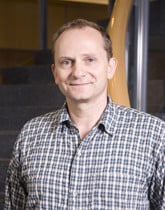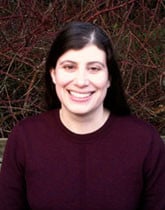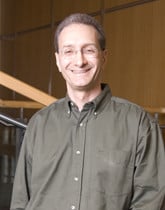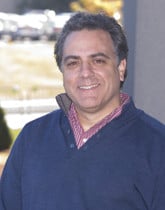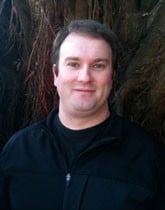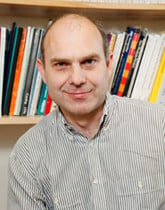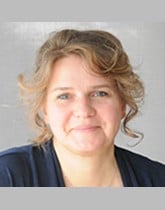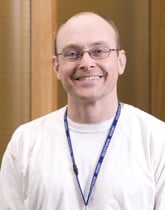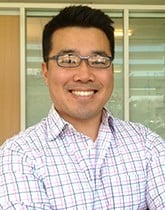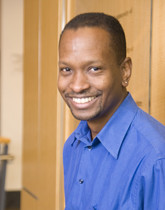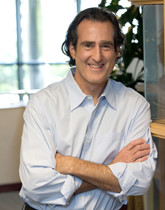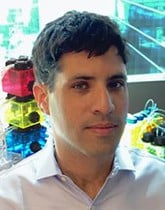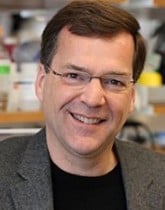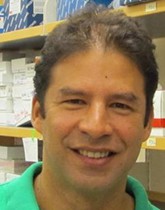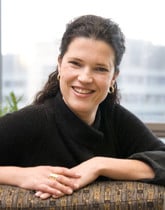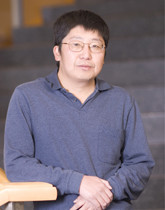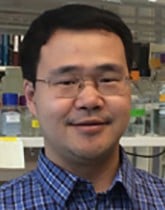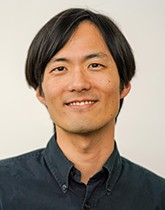Secondary Appointments
-

Ingolf Bach, PhD
Our research investigates molecular and epigenetic mechanisms of gene expression during cell fate specification. We use mouse embryogenesis as model system applying molecular, biochemical and genetic methods.
-

Jennifer Benanti, PhD
Our laboratory is interested in the molecular mechanisms that control how cells grow and divide. We are using genetics, biochemistry and cell biology, in both yeast and mammalian cells, to study how protein degradation by the ubiquitin proteasome system controls cell cycle and metabolic transitions.
-

Michael Brodsky, PhD
We use Drosophila melanogaster as a model organism to study how cells distinguish between normal and dysfunctional chromosomes. We are particularly interested in how p53-dependent and p53-independent signaling pathways regulate apoptosis in response to DNA damage and unprotected telomeres.
-

Lucio H. Castilla, PhD
Our laboratory studies how leukemia oncogenes alter cellular programs to transform hematopoietic stem and progenitor cells into a leukemia initiating cells. We combine genetic, biochemistry, and molecular biology approaches in transgenic mice and human cells to identify and characterize pathways deregulated by mutations in the members of the CBF gene family that redefine survival, self-renewal, and expansion of pre-leukemic progenitors. Recent efforts use this knowledge to develop high throughput small-molecule screens to identify inhibitors of oncoproteins that may be used as new drugs for improved therapies.
-

Thomas Fazzio, PhD
Our lab is focused on the identification of regulatory networks controlling gene expression in stem cells. In particular, we are interested in the roles of chromatin regulators in stem cell self-renewal and differentiation, and we take molecular, genomic, and biochemical approaches to understand these processes.
-

Heinrich Gottlinger, PhD, MD
The laboratory focuses on the late events in human immunodeficiency virus (HIV-1) replication, in particular on an endosomal budding machinery that HIV-1 co-opts to promote its egress from infected cells, and on the molecular mechanism by which the viral accessory protein Nef enhances the intrinsic infectivity of newly assembled virions.
-

Elinor Karlsson, PhD
My research uses evolution as a tool for understanding how the human genome works. By combining signals of natural selection with genome-wide association studies, I aim to identify genes, pathways, and the functional variants underlying polygenic diseases, and translate these discoveries into advances in human health care. I am currently applying these methods to understand infectious disease resistance in humans, such as cholera resistance in Bangladesh, as well as behavioral genetics in dogs.
-

Anastasia Khvorova, PhD
Develop and characterize novel RNA chemistries to promote efficient oligonucleotide internalization and tissue distribution.
-

Nathan Lawson, PhD
We are interested in how blood vessel identity is programmed. To investigate this process we take advantage of the zebrafish as a model system. We utilize genetic and molecular approaches to identify genes important for endothelial differentiation, while in vivo time lapse analysis allows us to visualize blood vessels as they form in a live embryo. Since this process is evolutionarily conserved, what we learn about blood vessel formation in the zebrafish will be relevant to human disease.
-

Michael Lee, PhD
Treatment of many human diseases, including cancer, typically involves modulation of signal transduction pathways. These pathways are functionally integrated, very plastic, and incredibly sensitive to environmental context. Our group uses a combination of experimental and computational approaches to study the organization and function of signaling networks controlling the growth, survival, and death of cancer cells. We are particularly interested in understanding the adaptive properties that cells engage when faced with anti-cancer drugs, as well as identifying genetic, non-genetic, and contextual factors that contribute to the therapeutic variability seen in cancer patients.
-

Brian Lewis, PhD
Primary pancreatic and liver cancers are deadly malignancies characterized by the rapid decline of patients after diagnosis. Work in the Lewis lab aims to elucidate the molecules and signaling pathways involved in tumor initiation, tumor progression and metastasis, and response to therapy in these tumors, using genetically engineered mouse models, cultured primary cells, and cancer cell lines.
-

Craig Mello, PhD
Our lab uses the nematode worm C. elegans as a model organism to investigate how embryonic cells differentiate and communicate during development. In addition, we are investigating the mechanism of RNA interference, a form of sequence-specific gene silencing triggered by double-stranded RNA.
-

Amir Mitchell, PhD
Our lab studies the response of cellular networks to changing environments in health and disease. While the structure of regulatory pathways is studied extensively, far less is known about network re-organization under time-varying stimuli. Yet this under-explored dimension has broad implications – time-variant stimuli can culminate in extreme outcomes, from detrimental signaling catastrophes to anticipatory stress responses. We combine experimental and theoretical approaches to dissect network functionality and uncover its unique points of failure. We aim to exploit the network structure to therapeutically target subpopulations of diseased cells within a healthy host.
-

Erik Sontheimer, PhD
Biology and mechanism of RNA-based gene regulation; CRISPR interference; RNA-directed genome editing and gene control.
-

Heidi Tissenbaum, PhD
Our work in focused on understanding the molecular mechanisms involved in the aging process using a combination of genetics, molecular biology and biochemistry. Our long term goal is to increase the healthspan (the number of active, productive years before the onset of age-associated decline) of individuals; redefining middle age.
-

Eduardo Torres, PhD
Our research interests are focused on understanding how aneuploidy affects cellular physiology and metabolism, and how aneuploidy influences cell evolution leading to further gross genomic alterations. Utilizing Saccharomyces cerevisiae as a model organism, we generated a series of aneuploid strains, each carrying an additional copy of 1 of the 16 yeast chromosomes and characterized their effects on cell physiology.
-

Marian Walhout, PhD
We aim to understand how regulatory networks control animal development, function, and homeostasis; and how dysfunctional networks affect or cause diseases like diabetes, obesity and cancer. We use a combination of experimental and computational systems biology methods to map, characterize and manipulate regulatory networks, most notably in the nematode C. elegans.
-

Yong-Xu Wang, PhD
Our focus in the lab is to dissect the functional roles of nuclear receptor PPARs and their co-regulators in glucose and fatty acid metabolism and metabolic diseases, and to understand their molecular mechanisms of action. A combination of tools, including molecular biology, mouse genetics, physiology and genomics, will be employed.
-

Wen Xue, PhD
"Our lab uses mouse models of cancer to investigate cancer genetics and treatment. We use CRISPR genome editing to functionally dissect cancer mutations in liver and lung cancer. Projects are ongoing to develop CRISPR tools to speed up cancer gene discovery and disease gene repair."
-

Hyun Youk, PhD
Broadly, our laboratory aims to understand what it means for a cell and an organism to be dead at a systems-level. Specifically, we are currently addressing two questions: (1) what principles allow cells and organisms to re-enter a replicative (active) state from an inactive state?; and (2) why and how do cells autonomously or collectively survive and/or die?

